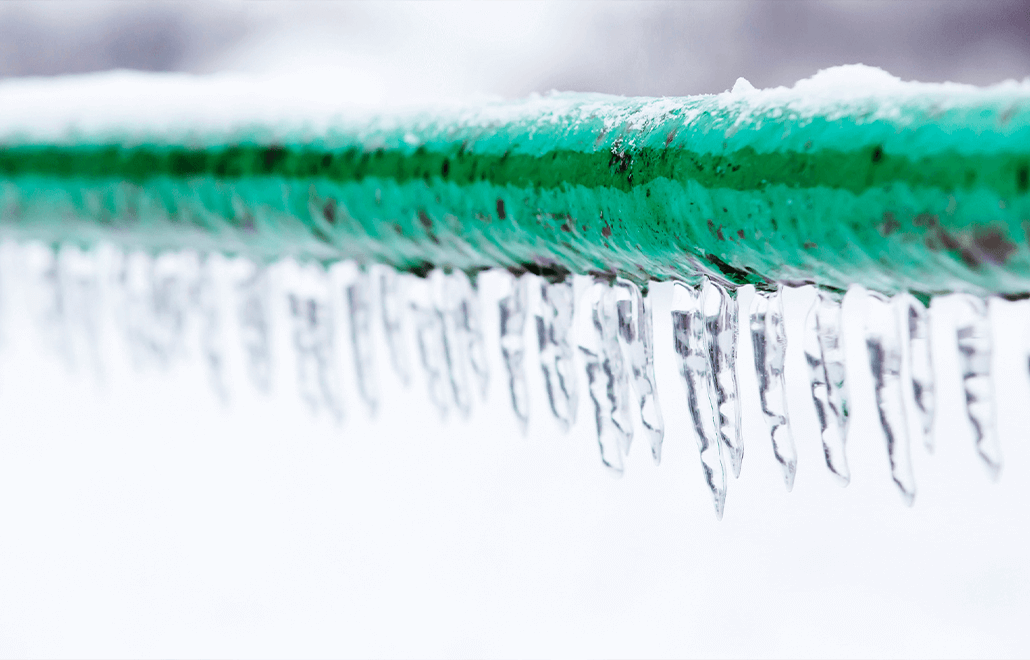
21 Nov How to Prevent Frozen Pipes and Costly Repairs
As the temperature drops and winter sets in, homeowners face a common but often preventable issue: frozen pipes. When pipes freeze, they can burst, leading to costly repairs and significant water damage. At FB Plumbing, we understand the importance of protecting your plumbing from the cold. In this blog post, we’ll discuss the causes of frozen pipes, the steps to prevent them, and what to do if you find yourself facing this chilling situation.
The Causes of Frozen Pipes:
Pipes typically freeze when exposed to freezing temperatures, but several factors can increase the risk:
- Lack of Insulation: Poorly insulated pipes are more susceptible to freezing. This is especially common in older homes.
- Exposure to Cold Air: Pipes in unheated or exterior areas like basements, attics, crawl spaces, or garages are at higher risk.
- Cracks or Leaks: Even a small crack in a pipe can allow cold air to penetrate, increasing the chance of freezing.
- Neglected Plumbing: When pipes aren’t properly maintained, they are more prone to freezing.
Preventive Steps to Avoid Frozen Pipes:
Protecting your plumbing from the cold is essential. Here are some proactive measures:
- Insulate Pipes: Insulate exposed pipes with foam pipe insulation or heat tape, especially in unheated areas. Proper insulation is one of the most effective ways to prevent freezing.
- Seal Cracks and Gaps: Seal any visible cracks or gaps in walls, foundations, and the exterior of your home to keep cold air out.
- Add Heat: If you have pipes in an unheated area, consider using a space heater or heat lamp to provide additional warmth. Always use these devices safely.
- Keep a Drip: On extremely cold nights, allow a slow drip from faucets connected to vulnerable pipes. The movement of water can prevent freezing.
- Close Garage Doors: If your garage houses water supply lines, keep the doors closed to prevent cold air from entering.
- Open Cabinet Doors: For pipes located inside cabinets, like under sinks, open the cabinet doors to allow warm air to circulate.
- Disconnect Garden Hoses: Before winter arrives, disconnect and drain garden hoses. Close the outdoor water valves to prevent cold water from entering your pipes.
- Maintain a Consistent Temperature: Keep your home heated consistently, especially during severe cold spells. Don’t lower your thermostat drastically when you’re away.
What to Do When Pipes Freeze:
Despite your best efforts, pipes can still freeze. If you discover frozen pipes:
- Keep Faucets Open: When you suspect a frozen pipe, keep faucets open. As you thaw the pipe, water and pressure will be released.
- Apply Heat: Use a hair dryer, heating pad, or a portable heater to thaw the affected area gently. Start near the faucet and work your way towards the frozen section.
- Never Use Open Flames: Do not use open flames, propane heaters, or torches to thaw pipes. This can lead to accidents and fire hazards.
- Call FB Plumbing: If you can’t locate or access the frozen pipe, or if you’re uncomfortable thawing it yourself, contact FB Plumbing. Our experienced plumbers can safely thaw and repair the pipe.
FB Plumbing: Your Plumbing Winter Warriors
Winter can be harsh on your plumbing, but with the right precautions, you can avoid the hassle and expense of frozen pipes. At FB Plumbing, we’re here to help you protect your home from the cold. Our expert plumbers are just a phone call away, ready to assist with preventive measures, repairs, or emergencies. Don’t let frozen pipes get the best of your winter—trust FB Plumbing to keep your plumbing in top shape year-round.
For more plumbing advice or to schedule an appointment, contact FB Plumbing today. Stay warm, stay safe, and enjoy a trouble-free winter!
Sorry, the comment form is closed at this time.